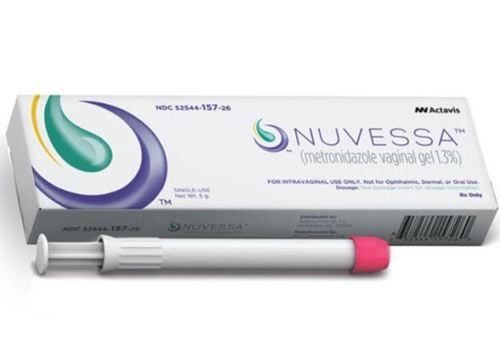The article is professionally consulted by Master, Doctor Tran Lam Khoa - Department of Obstetrics and Gynecology - Vinmec Central Park International General Hospital.
Bleeding after a vacuum aspiration is a result of the uterus not contracting properly, or blood vessels failing to constrict to stop the bleeding. If the bleeding is heavy and prolonged, it is extremely dangerous, and you should seek a gynecologist immediately to avoid potential complications.
1. Heavy bleeding after a vacuum aspiration
Typically, after an abortion, women experience bleeding for about 5-10 days. The amount of bleeding gradually decreases each day and eventually stops, although there may be accompanying abdominal pain due to uterine contractions, especially if the bleeding is heavy or if there is significant pain or high fever. Additionally, due to individual differences in recovery and body condition, some women may experience bleeding for a few more days.
If bleeding persists for more than two weeks after an abortion, it could be due to an infection in the uterus, cervix, or vagina. If the bleeding is heavy and the woman has not properly cleaned herself, it creates a favorable environment for parasites to cause infection.

2. Prolonged bleeding after abortion
If you are still bleeding two weeks after an abortion, and the blood appears unusual, such as dark, foul-smelling, or clotted, accompanied by severe abdominal pain, illness, or high fever, you should seek medical attention immediately, as there is a high chance you may be experiencing one of the following complications:
Retained pregnancy tissue or placenta
The symptoms include intense, repetitive abdominal pain, heavy bleeding with dark red blood, and large blood clots. If the abortion was performed at a low-quality facility, women are more likely to have retained pregnancy tissue or placenta, meaning the abortion was not successful. In such cases, it is crucial to visit a medical center for further treatment to complete the abortion.
Infection
Infections can occur due to unsterile medical instruments or poor hygiene, which can lead to blood infections or gynecological infections. Typical symptoms include bleeding with a foul odor or yellowish discharge, severe abdominal pain, chills, etc. If left untreated, infections can spread to the fallopian tubes and ovaries, possibly leading to infertility or even permanent infertility.
Uterine injury
This is a very dangerous complication that can affect the reproductive health of women in the future. If the abortion procedure is performed by an unskilled doctor, there is a risk of uterine perforation or scarring, which can have severe consequences.
Hemorrhage
Hemorrhage after an abortion is a common complication if the procedure is unsafe. This is a very dangerous condition, as it leads to significant blood loss, which can be life-threatening if not treated promptly.
Heavy bleeding from the female genital area may occur, with blood flowing in large amounts, which may be thin or mixed with clots. Prolonged, severe abdominal pain and systemic symptoms due to blood loss, such as dizziness, headaches, fainting, low blood pressure, vomiting, nausea, and shock, can follow.
Therefore, to ensure the abortion has been completed successfully, you should follow up with a doctor for an examination and to receive timely treatment if any pregnancy tissue remains.

3. What should be checked during a follow-up after a vacuum abortion?
During the follow-up visit after an abortion, the woman will undergo a gynecological examination. The doctor will check if the uterus has contracted properly, whether there are any signs of infection in the genital tract, and whether there is still vaginal bleeding. Based on the symptoms, the doctor will prescribe treatment if necessary.
If the follow-up is not done, abnormalities or complications after the abortion may not be detected in time, which could lead to infections, uterine adhesions, and affect future reproductive health. Additionally, it is important to maintain a proper lifestyle and rest, and to have regular health check-ups to proactively protect personal health.
To help clients detect and treat gynecological diseases early, especially after an abortion, Vinmec has launched a Basic Gynecological Screening Package. This package helps clients detect early-stage infections, making treatment easier and more affordable. It also includes screening for early-stage gynecological cancers (such as cervical cancer) even in the absence of symptoms.
The Basic Gynecological Screening Package is designed for female clients of any age and is recommended for those who may have the following symptoms:
- Abnormal vaginal bleeding
- Menstrual problems: irregular or abnormal cycle
- Unusual vaginal discharge (e.g., foul-smelling, abnormal color)
- Pain or itching in the genital area
- Women with risk factors such as poor personal hygiene, unprotected sexual intercourse, or history of abortion
- Other symptoms such as unusual vaginal discharge, itching, pain, or abnormal vaginal bleeding.
Please dial HOTLINE for more information or register for an appointment HERE. Download MyVinmec app to make appointments faster and to manage your bookings easily.













